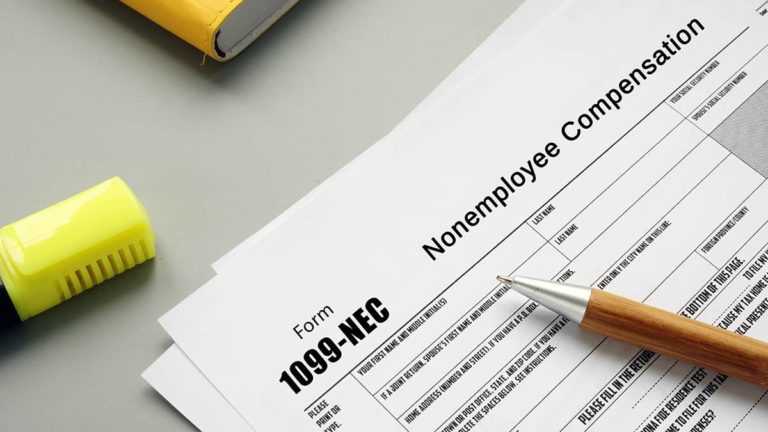BIG NEWS: On March 21, 2025, FinCEN announced that all domestic reporting companies—businesses created in the United States—are exempt from the requirement to report beneficial ownership information (BOI) to FinCEN.
Now, only certain foreign companies must report beneficial ownership information—aka who owns and controls the company—to the U.S. government. Failing to comply may garner hefty penalties of $10,000 and even jail time.
Table of Contents
- What is beneficial ownership information reporting?
- Who must report under the beneficial ownership rule?
- BOI filing deadline
- What information do you need to report?
- Penalties for failing to follow the beneficial ownership rule
- Preparing your business for BOI reporting
What is beneficial ownership information reporting?
Beneficial ownership information includes identifying information (e.g., name) of the individuals who own or control a business. BOI reporting mandates that individuals of foreign businesses report this information to the Financial Crimes Enforcement Network (FinCEN)—a bureau of the U.S. Department of the Treasury.
The Corporate Transparency Act (CTA) of 2021 established these BOI reporting requirements to counter illegal activities, including:
- Money laundering
- Financing of terrorism
- Proliferation financing
- Serious tax fraud
- Human trafficking
- Drug trafficking
- Counterfeiting
- Piracy
- Securities and financial fraud
- Acts of foreign corruption
The goal of BOI reporting is to make it harder for bad actors to engage in illegal activities.
Who must report under the beneficial ownership rule?
Under the beneficial ownership rule, a “reporting company” must report general and beneficial owner information.
FinCEN’s original rules, which took effect on January 1, 2024, applied to domestic companies structured as a corporation, LLC, or similar entity and foreign companies.
After multiple legal hurdles and delays, FinCEN announced on March 21, 2025 that domestic reporting companies are now exempt from BOI reporting. BOI reporting now only applies to foreign entities.
1. What’s a reporting company?
Companies formed under the law of a foreign country that were created by filing a document with a secretary of state (or similar office) to do business in the U.S. are “reporting companies.”
The BOI reporting requirements do not apply to all companies, as there are exemptions.
2. Who is a beneficial owner?
A beneficial owner is an individual who directly or indirectly does either of the following:
- Exercises substantial control over the reporting company. Examples include:
- Senior officers (e.g., company president)
- Appointment or removal authorities
- Important decision-makers
- Owns or controls at least 25% of the reporting company’s ownership interests. Examples include:
- Shares of equity
- Stock
- Voting rights
- Capital or profit interest
As of March 21, 2025, foreign entities are not required to report any U.S. persons as beneficial owners, and U.S. persons are not required to report BOI for foreign entities.
The beneficial owner classification does not apply to all individuals. For more information on the beneficial owner exceptions, consult FinCEN’s Small Entity Compliance Guide.
BOI filing deadline
Reporting companies registered to do business in the U.S. before FinCEN’s March 21 interim final rule must file BOI reports no later than 30 days from March 21.
Reporting companies registered to do business in the U.S. on or after the March 21 interim final rule publication date have 30 calendar days to file BOI reports after receiving notice that their registration is effective. For more information, you can read FinCEN’s press release here.
Companies can e-File the BOI report on FinCEN’s website here.
What information do you need to report?
Businesses must report:
- Reporting company information
- Beneficial owner information
- Company applicant information*
*Only applies to companies created/registered on or after January 1, 2024. You can report up to two company applicants. The company applicant is the individual who files the document that creates/registers the company. If more than one person is involved in filing, also include the person primarily responsible for directing or controlling the filing.
| Reporting Company Information | Beneficial Owner Information | Company Applicant Information If applicable |
|---|---|---|
| Legal name | Name | Name |
| Trade, doing business as (DBA), or trading as names | Date of birth | Date of birth |
| Business address | Residential address | Address |
| Jurisdiction of formation or registration | Identifying number from an acceptable identification document, the name of the issuing state or jurisdiction, and an image of the document | Identifying number from an acceptable identification document, the name of the issuing state or jurisdiction, and an image of the document |
| Taxpayer identification number (TIN) |
FinCEN will store company’s reported BOI information in a “secure, non-public database.” According to FinCEN, they will use rigorous security methods and controls to handle this private information.
So, who has access to reported information? Government and foreign officials can submit a request through a U.S. Federal government agency to obtain secure information. In certain situations, financial institutions can also request access to reported information—if the reporting company consents.
You must file your BOI report electronically through FinCEN’s website here.
If you make a mistake relating to your company information, beneficial owner information, or company applications, you must correct it.
Correct your report within 30 days after becoming aware of the inaccuracy (or having reason to know of it).
If your company or beneficial owner information changes (e.g., new CEO), you must update your BOI report.
File an updated report within 30 days after the date of the change.
Penalties for failing to follow the beneficial ownership rule
There are some pretty steep penalties for failing to comply with the beneficial ownership reporting requirements. These include hefty fines and jail time.
FinCEN will assign the following penalties to businesses that willfully fail to report truthful and accurate beneficial ownership information:
- Civil penalties: Up to $591 per day that a violation continues
- Criminal penalties: Up to $10,000 fine and/or up to two years of imprisonment
If a business fails to file a required BOI report, senior officers may be held accountable.
Preparing your business for BOI reporting
It’s easy to get overwhelmed by BOI requirements and rules.
Here’s a quick list of what you need to do to prepare your business for the FinCEN beneficial ownership rule:
- Determine if you are a reporting company
- Find out if your company meets the reporting company exemption
- Determine who your beneficial owners are (individuals who exercise substantial control or own at least 25% of the company’s ownership interests)
- Find out if any of your beneficial owners are exempt from the reporting requirements
- Gather reporting company, beneficial owner, and (if applicable) company applicant information for the report the following information for the BOI report
- Electronically file the BOI report with FinCEN by the deadline
For more information on your responsibilities, consult FinCEN’s BOI reporting frequently asked questions.
This article has been updated from its original publication date of November 28, 2023.
This is not intended as legal advice; for more information, please click here.


